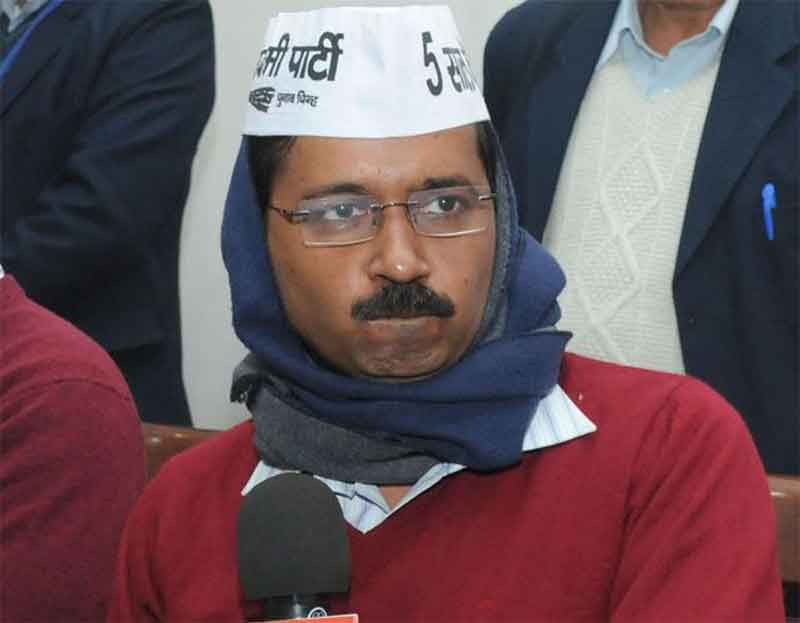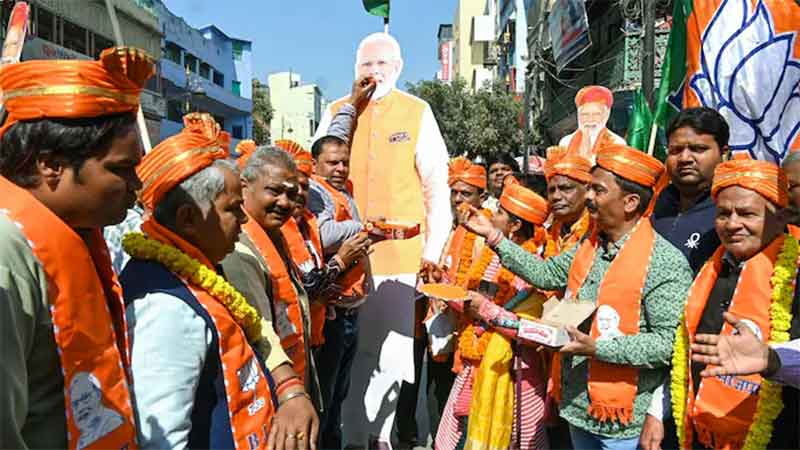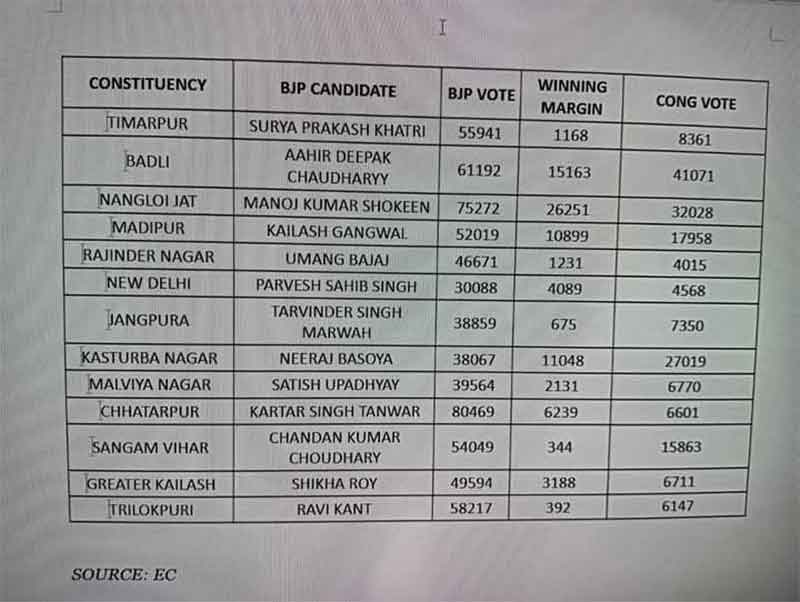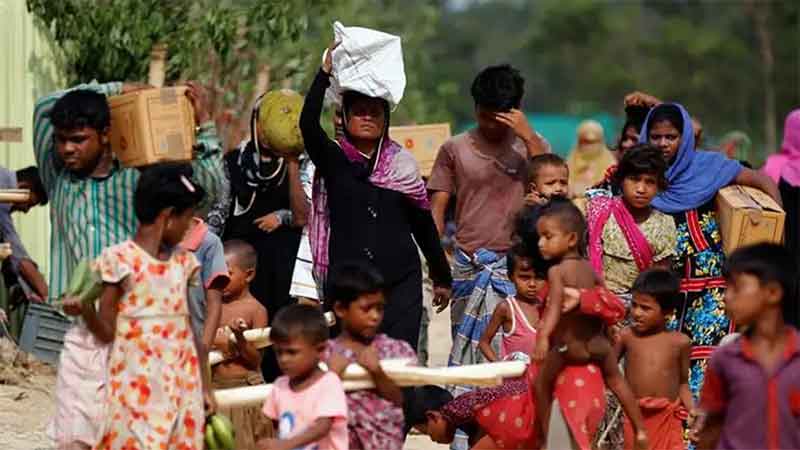
There is nothing surprising about Aam Aadmi Party (AAP) about having been defeated in Delhi Assembly elections. Neither is their anything astonishing about its key leaders, including Arvind Kejriwal and Manish Sisodia having failed to win. Their defeat does not rest exclusively on voters being convinced by extensive nature of campaign indulged in by Bharatiya Janata Party (BJP), particularly Prime Minister Narendra Modi. If BJP-stalwarts’ campaign had the magical power to turn votes in their party’s favor, BJP would have fared better in 2024 parliamentary elections and other states, where they failed to wrest needed seats from regional parties during assembly polls.
Kejriwal is perhaps more shocked by voters’ verdict than Modi was by his party’s failure to win majority in Lok Sabha polls. At least, Modi retained his seat and support of BJP’s allies to return to power for the third term. The same cannot be said about Kejriwal. What is worth noting is the excessive confidence displayed by Kejriwal in “succeeding” “solo”- that is without any alliance with other parties- in Delhi polls. Here, shrewd strategy exercised by BJP cannot be ignored, that is the party’s preference for alliance with regional parties and/or leaders to strengthen chances of its victory. Certainly, Indian National Congress (INC) opted for the same strategy during parliamentary elections and did succeed at least in becoming the leading opposition party. But during regional polls, the same strategy has either not worked or has not been exercised leading to the party and/or India-bloc’s failure or limited success. Alliance of Congress with Jharkhand’s key regional party helped India-bloc to win here. The same strategy didn’t work in Maharashtra. It may be recalled, ahead of Maharashtra polls, several India-bloc leaders blamed Congress Party and its leader Rahul Gandhi for BJP’s victory in Haryana Assembly elections. Little importance was given by them to division of votes within India-bloc because of their being no alliance between Congress and AAP to contest Haryana elections. In this context, why should only Congress or in other words, Rahul Gandhi be blamed when and where failure of India-bloc to align may be viewed as responsible for the defeat? Yes, they did align for Maharashtra polls but internal bickering, targeting Rahul, hardly presented a favorable image of India-bloc before the voters.
The approach of Trinamool Congress Party (TCP) leader, West Bengal Chief Minister Mamata Banerjee towards alliance for assembly elections cannot be ignored. She is taking the same stand for 2026 assembly elections as she did during the preceding polls in 2021. She is not considering any alliance for 2026 elections also. Simply speaking, she apparently sees greater risk in going for an alliance than in avoiding the same. The issue is not simply of Congress not having any stand in West Bengal but also that of this increasing the possibility of division in anti-BJP votes which is likely to help BJP gain more. Undeniably, the lady is simply being practical from two angles, one is that of ensuring limited chances of division in votes favoring TCP and second is that of not taking any risk which may help her key rival gain. Yes, this also implies limiting chances of other anti-BJP parties’ success in the state. But then, this is the issue of regional politics, where she is not interested in helping regional leaders of other parties gain. TCP’s primary strength in confined to West Bengal and Banerjee cannot apparently afford to bargain on that by aligning with other parties for assembly polls. It may also be noted, ahead of Delhi polls, Banerjee drew attention of other India-bloc leaders to her having the potential to head the India-bloc. She certainly received support of a few in this direction but not all or even majority.
Kejriwal also apparently entertained the vision of being recognized and accepted as an important national leader, whose return to power in Delhi would certainly have given it a great boost. But that was not to be. Prospects of other India-bloc leaders visualizing him as such have certainly been eliminated for the moment. Kejriwal seemed to have been a little too confident about his popularity among voters. It is possible, charges filed against him, leading to his imprisonment, anti-Kejriwal negative campaign indulged in by his rivals, voters’ dissatisfaction with what has been delivered to them by his government over the past decade and other factors compelled them to opt for a change. At the same time, if the majority remained satisfied and retained confidence about his policies, he would have probably succeeded. Chances of negative campaign against him would have had little impact. In fact, it would be more appropriate to say that his defeat has not been decided primarily by his rivals’ campaign but more because of voters’ electoral judgment against him. He has been defeated without voters being aware of who would be the next Delhi chief minister.
It would be erroneous to state that Kejriwal’s defeat also symbolizes defeat of India-bloc as the latter did not contest the polls as an alliance but as different parties. From this angle, it would be perhaps appropriate for members of India-bloc to be more specific when they contest as an alliance and when they do not. In this context, the issue of India-bloc’s “leadership-crisis” has no relevance for electoral results of either Delhi or other states where the bloc did/does not contest as an alliance. Greater importance needs to be given to whether party losing the elections is affected by a leadership-crisis or not.
Subscribe to Our Newsletter
Get the latest CounterCurrents updates delivered straight to your inbox.
Similarly, to assume that BJP’s return to power in Delhi after a gap of 27 years signals a major victory for the party and success of its stalwarts’ campaign is equivalent to floating over-filled balloons a little ahead of time. Unfortunately for him, Kejriwal’s over-confidence rested on such balloons which have burst and fallen flat. BJP’s victory rests, as suggested earlier, primarily on voters’ dissatisfaction with Kejriwal on certain basic issues linked to their daily life, including supply of clean water. Besides, if voters’ electoral stand could spell a major political shock for Modi during Lok Sabha polls, there really is nothing surprising about Kejriwal receiving a similar jolt in Delhi Assembly elections!
Nilofar Suhrawardy is a senior journalist and writer with specialization in communication studies and nuclear diplomacy. She has come out with several books. These include:– Modi’s Victory, A Lesson for the Congress…? (2019); Arab Spring, Not Just a Mirage! (2019), Image and Substance, Modi’s First Year in Office (2015) and Ayodhya Without the Communal Stamp, In the Name of Indian Secularism (2006).













































